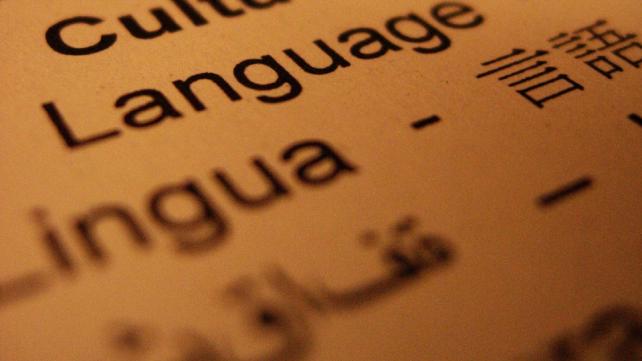
The spelling of Arabic Islamic (Muslim Language) words in the English language may not seem like a big deal to many people. But for Muslim writers, teachers and scholars, this is a bread and butter issue that what language do Muslims speak? Among the linguists and scholars of Arabic there are many standards and discussions of Arabic Transliteration or Romanization, but there is little agreement. While we support the need for a dominant standard for linguists, professors and dictionary editors, the purpose of this article is not participation in that linguistic and scholarly debate, but to look for and propose a solution for a common English language usage.
Languages borrow words from each other through times and adopt them to their mode and style. Those who know what happens to "Pepsi" or "television" as it is adopted to Arabic sounds can appreciate why Quran became Koran and Masjid became mosque in English.
There are three dominant trends in the current usage of Arabic words in the non-scholarly English language that we have observed.
- Frequent use of Islamic and Arabic terms with Romanization or transliteration in English
- Use of diacritical marks to represent proper sounds of the Arabic words as close to its original sound in Arabic as possible to convey the pronunciation of Arabic words
- Using Arabic in graphics bits at the name of Allah and the Prophet to show our customary respect.
While motives of the writers are clearly helping the non-Arabic speaking people, in the absence of simple basic common rules, English as Muslim language is becoming difficult to read for new Muslims, young Muslims, and non Muslims.
Here are some simple rules that we are using at Sound Vision and request you, your Masjid newsletter, or organization to formally adopt as well.
Here are some rules for a common simple Muslim Language English:
How much Arabic is too much?
If it is meant for a general audience, we suggest a minimum use of the basic Islamic terms in English. Loading a writing or a speech with Arabic terms may impress a reader or listener but is certain to fail to communicate with a vast majority of Muslims (90%) who are not Arabs, are young Muslims, new Muslims, or non Muslims. If communication is the purpose, don't create problems for audience. Therefore…
- Islamic songs are better than Nasheed or worse Anasheed.
- Fasting is better than insisting on saum for English readers
- Mosque could be used while still fighting for Masjid.
- Let's live with Caliph until we really get a Khalifa or Khaleefah.
- Bless instead of barakah or baraka
- Muslim community conveys better than Ummah, although we may be more attached to the term emotionally.
A general rule of thumb is that if it is not in the English dictionary don't use it. If you must here are some rules about it.
If it is not an Islamic term, just an Arabic word, don't use it:
It has become a kind of fashion by some writers but mostly by speakers to use Arabic terminology in English which is not even Islamic. We think it is unnecessary burden on the growing Muslim language English. Therefore…
- Forget about kufi. Just call it a cap.
- Unless you are discussing ethnic dresses and their names, let's avoid Jilbab or Jalbabiyya with all its spelling. It's a long Arabic gown.
Import Islamic terms from Arabic not from Turkish, Urdu, Malay, or Swahili:
Arabic Islamic Terms are better than Islamic terms which has been culturally adopted in Turkish, Persian, Malay, Swahili or Urdu culture. Since these languages are essentially Muslim dominated languages, they have long adopted Islamic Arabic words to their language and have an Islamic terminology of their own. It is good that we import Islamic terms from Arabic into English instead of through other languages. Therefore…
- Muslim is better than Musalman or Musselman. It is a necessary sacrifice on the part of Muslims from Turkey to Chechnya and Pakistan to Burma that they not insist to use Musalman in English as they call a Muslim in their languages.
- Salat is far better than namaz
- Fasting is better than roza
- Imam is better than hoja, mulla, maulvi, mawlavi, maulana
- Similarly the use of hazrat before the name of the Prophet and his companion should also be limited to Urdu, Persian, and Turkish since it is not used in this way in Arabic.
How to write Arabic Words in English:
If you must use an Arabic word which is not commonly used in English,
- Italicize
- Give the translation in bracket if it is a short word
- Describe in a phrase either in a footnote or in the same paragraph
- Start your article by introducing the terms or add a glossary at the end
- Don't use diacritical marks found in the dictionary or in scholarly writings
Use Singular Arabic not Plurals:
Use singular Arabic term but not its plural and other derivatives:
- It is good that with our efforts American media is switching to Muslim instead of Moslem. And it is good that we are making an English plural from it "Muslims" instead of Muslimoon, Muslimat, Muslima, or Muslimah.
- Similarly let's just use the English plural for Masjid as Masjids instead of masajid as it has started appearing in many Muslim writings. Let's insist on the usage of Masjid instead of Mosque or interchangeably. But in no way use massaged as recommended by MS Word (it is not a joke).
- Hadith is good but don't use its plural Ahadith.
Dominant spellings and usage are acceptable even though if they may not be fully accurate:
If an Arabic term or its equivalent English word has become dominant in usage, lets keep using it for a while although it may not be very accurate representation of Arabic sounds or term. You cannot transform English into Arabgish or Engbic, can you?
- Usage of Islam is more dominant than Islaam or al-Islam or alIslaam, or al Islam. So let's be happy with it.
- Hajj has become the dominant spelling, struggling with Hadj or Haj is not wise. However, do explain in the bracket what it is.
- Fasting is better than saum since it is has not become dominant.
- Ramadan is better than Ramazan, Ramzan, Ramdan, or Ramadhaan
- Eid is better than id or Id.
- Hadith is dominant. Don't confuse it by using al-Hadith, Hadeeth, al-Hadeeth or Hadis.
- Zakat is more dominant in usage than Zakah and must be used instead of alms, which is a Christian term with a different concept and culture. Religious tax also confuses the Quranic term.
- Salat is also used more commonly than Salah or Salaah, as Salah, or al Salah.
Arabic names and words which are English now
When Muslim navies were dominant part of world waters, we use to call the chief of the navel forces, Amir ul Bahr. As English navies became dominant they adopted our term into their language as Admiral. Now even Muslim countries use that term. Therefore…
- Let's keep Algebra as it is, though it is an Arabic term, named after our scholar's book. Trying to redo it is not wise.
- Similarly if communication is the goal, writing Avicenna is better while ibn e Sena or any other spelling may come in the bracket which may be more true to the actual name of the father of modern medicine.
- Alhazen is also proper than efforts to tell people about ibn al Haitham in ten other spellings. He was the Muslim founder of modern optics. Arabic name can always come in the brackets.
Simpler is better: The pronunciation jihad in English
Many difficult and uncommon spellings of Arabic words in English are used to achieve an honest rendering of the Arabic pronunciation. While the motives are noble, we need to rely on proper methods to achieve that. We think once the usage of these terms will become common, some may learn to pronounce it right while a vast majority may never pass a test by a good Arabic teacher. But they will at least understand the meaning of it. Even now the written word "Muslim" still does not help its reader to say it with the proper pronunciation of it unless an interaction with Muslims will help them in the future. So let's have some patience on wrong pronunciation. Urdu, Malay, Turkish, Swahili, and Persian has gone through the same process of adopting Arabic words so let's allow English to have its share as well. Let's make the Muslim English easier to read by avoiding the usage of diacritical marks or strange vowel combinations. Therefore….
- Quran is simpler than Qur'an, al-Qur'an, or al-Qur'aan while we are still struggling to stop the usage of Koran which does not seem to be ill motivated either.
- Dawa is simpler and better than Da'wa, Da'wah, or Dakwah. But do explain what in the word it is.
- Azan is better than Adhan, Azaan, Aazaan, or Athan. Don't forget to write in brackets what it means though.
- Zikr, if you must use it with explanation, instead of Dhikr.
How to write/use Islamic Phrases in English writing
- Bismillah also shows up in different forms. If you don't want to begin with its English translation than we recommend use of a graphic of Arabic bismillah written with beautiful calligraphy or just write Bismillah. If you must use the whole phrase then we suggest Bismillah ir Rehman ir Raheem. But please don't use 786. We have been asked in Islam to say it when we start anything. Therefore, writing it is not compulsory any way.
- Avoid writing Masha Allah, insha Allah, subhan Allah and Alhamdu lillah unless it is a personal correspondence and you know that the person receiving it knows what it means. If you do use these for general audiences it is only appropriate to use the meaning as well. These are beautiful phrases from our Islamic culture. There is a great deal of reward associated with them as well. However, communication at the level of others is a recommended practice of our Prophet Mohammad, Allah's peace and blessing be upon him.
- Let's make Assalamu Alaikum dominant. It is better and simpler than 20 other versions of it. For example, As-Salamu'alaykum, as salam o, al Salamo, salamo, or alykem, eleikum etc.
- Let's avoid using Khuda Hafiz or Allah Hafiz. Just say Assalamu Alaikum as we depart as well.
- Let's greet people with Assalamu Alaikum instead of ahlan, which leaves many non Arabs wondering what to say.
Allah and Prophet's Names
Writing Allah or God has been a difficult issue for many. Some translations of the Quran use God others use Allah. Instead of taking a position on this issue we suggest use it interchangeably so that language becomes use to it instead of differentiating between the two names. Millions of Muslims have been using Khuda or other names for Allah in the Muslim world while Arab Christian use Allah for God. Unfortunately some people are now introducing another spelling for Allah while name of the Prophet is spelled many different ways. Therefore, we propose …:
- Please stop writing Allaah. Allah has been the only spelling used so far by Muslims and non Muslims. Let's keep it that way.
- We are partial to the usage of Mohammad instead of any other spellings. It is the closest to the proper pronunciation although not as much in usage as Muhammad. Allah's peace and blessings be upon him.
Expression of love and blessings on the Prophet
Invoking Allah's blessings on Prophet Mohammad, his companions, other prophets and other respectable elders of Islam is a beautiful part of our culture. My Allah continue Muslims in maintaining this unique tradition. However, there are two risks in writing those Arabic phrases in English. It may sound just ritualistic to those who don't know what it means. Also it does hinder the flow of writing, thus communication. Therefore, we propose …:
- For the Prophet Mohammad we use, Allah's peace and blessing be upon him.
- We recommend that you use it only the first time the name comes in an article not all the time. It will make it easier reading. However, you may choose to say it as many times as the name comes with your lips. May Allah bless you for this love. Many books of the Islamic literature from our heritage follow this model.
- Don't write (PBUH), (S), or (SAAS) to substitute for English or Arabic phrases.
- Do not use Romanized Arabic phrase of blessings.
- Do not use cute Arabic graphics of blessings as some are using now.
- For all Prophets use, Peace be with him/them.
- For their companions, we use Allah is pleased with her/him/them.
- Similarly there are plenty of hadith which do not mention subhanahu wa ta'ala after Allah's name. Also do not use (SWT) either. It is not required at all. Show love in a language which people can understand. How about Allah, the Most Merciful or the Lord of us all.
Exceptions to these rules
These rules are based more on common sense than any deductive logic or structure imposed by English or Arabic language. This is an effort to develop standards in usage of Arabic words in journalistic English for the layperson. Therefore, there are several exceptions.
- Scholars and professors will have a legitimate need: Trained linguists often use the International Phonetic Alphabet to transcribe languages. The vast majority of Arabic "romanizations", including the Library of Congress system and the romanizations in the respected Hans Wehr dictionary, are transcriptions in the present sense. (The romanization used in the Wehr dictionary is the "official" transcription, based on the Deutsche Morgenländische Gesellschaft proposal, adopted by the International Convention of Orientalist Scholars in 1936 in Rome.) British Standard BS 4280:1969(1983) "Transliteration of Arabic Characters" provides a consistent system, but is not greatly used. The International Standards Organisation has also published standards for transliteration. The Encyclopedia of Islam uses normal English conventions where feasible, and diacritics to distinguish the velarised consonants. See an excellent but technical essay on the issue.
- Islamic Classroom: Classes at higher level will need to use and develop a system of transliteration which schools can adopt through out the English speaking world of Islam. However, children should also need to learn about this basic guide for simple English.
Conclusion
This article has evolved with Sound Vision's use of English. It is prepared with the intention to create a standard for the usage of common Muslim English. We welcome your suggestions to it.
Here is what we will do
- Keep listening to your suggestions. We will adopt and modify our proposal based on your suggestions and comments.
- We will update this document with version number and date and keep the older version online.
- We will provide it to other Muslim newspapers and organizations for their adoption and will post their comments online. So an ongoing discussion is created.
What you can do
- See if your writing can adopt these suggestions.
- See if your family can accept and use these guidelines.
- Can any of you use these guidelines and develop a dictionary of Islamic terms in English and send it to us?
- Get your Masjid or organization's newsletter to adopt these suggestion.
- Put a link to this pages URL for other's to see what rules they are adopting.
- Write a letter to a Muslim author and magazine that use strange spellings.
- Keep us informed of your suggestions at info@soundvision.com
Look forward to hearing from you. May Allah accept our efforts.

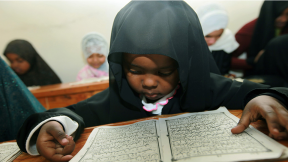
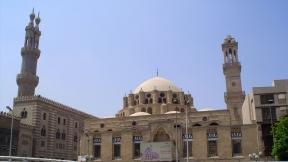
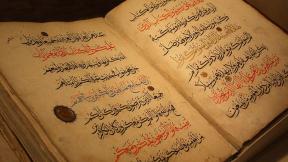
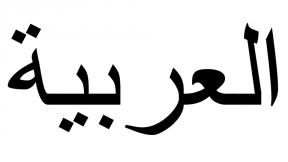


Comments
Salam Alaikum,Thank you very much for your graet article. I would suggest using the various terms such as "Allah", "Salah", "Thikr" and other ones, as they are mentioned in Al-Quraan Al-Qareem. The reasons behind this are to (1) learn the terms as they were mentioned in Al-Quraan and (2) to unite our use of such terms.Best of luck.If you would like to contact me, my email is:mahdi_elnasaira@hotmail.com
Location
excellent article, I found the article well-written, clear, and simple as well as the arguments are presented rationally. however, I diagree about the use of "Zikr" instead of "Dhikr", and "Rehman" instead of "Rahman". I wonder whether the prior criteria of adopting Muslim words is "the more common" or " the more standard"or "the most accurate". and how about "asmaa Allah al-husna" in English for example, is it better to use "Rahman", or "most merciful"?
Location
I found the article very useful and a good guide for Muslim users of English. I am interested in this area of research myself.
Location
Dear Br. Abdul Malik Mujahid,Asslam O AlykumJazakum Allah (SWT) kirn for the best way of using the Islamic common phrase in the English, for our Muslim English generation who had been born and rised in the west. We need all feel that Islam is easy to follow, practice and adapt as a road map to live this life with peace and enjoy every nano second of it, and win the hereafter, as well.Brother I agree with what had been sheaded light upon in the article, I want to add to waht you said;1- We need to use the phrase of Subhanaho W Talla with the word of Allah, when used for the 1st time, then using the a brivation (SWT), to a void the redanadacy, it will be boring for the English reader.2- The same thing with the name of Prophet Mohammad, we need to use the phrase Peace Be Unpon Him, then the a brivation (PBUH), when ever his name had been repeated.3- We need to use the Quranic, or Arabic Words gradually in our conversation with non-Arabic speakers, to make their ears used to, and love them, then these new world easily can find room in the world languages dictionaries, but as you mentioned we need to agree on one form of saying, pronouncing & writng them in a way that will be easy to the English or non-Arabic speaker.4- I agree with you, we need to use the Quranic, the pure Arabic words, not the cultural worlds. Promoting Islam is better cultural. The 1st is Islam, way of life, while, the 2nd is mislead.5- The Arabic Language is the Language of the Quran, the Paradise, & Allah (SWT). All other languages are tiwisting for the mouth. You can not master it, if there is no love or passion for Its creator. When you love HIM (SWT), everything arround this language will be easy to master even if you never born, spoken or learned it in a school. Prophet Mohammad (PBUH) and the Sahaba, Allah will be pleased with them (ABPWT) are the best examples, with out school, were Quran walking on earth....Assalam O Alykum
Location
great article. May God bless you.
Location
Commonsensical and reasoned; most unusual considering the theme.
Location
the article is fantastic, written scholarly and very educative
Location
Your article is timely as more and more muslims communicate with each other globally. this issue should be raised in a formal and wider audience so that it will be taken seriously. i agree with most of your suggestions especially about Allah Hafiz. Muslims in my country don't use it and i only knew about it over the internet. Indeed, writing Bismillah ir Rahman ir Raheem isn't compulsory but the Prophet Muhammad used it when he wrote to non muslim rulers. So it's only right that we follow him.
Location
I agree with the bulk of this article, and it is saying something which is very important. However, some of the details clearly need to be ironed out. For example, two small points I would disagree with is "zikr" instead of "dhikr" and "Rehman" instead of "Rahman". In these two examples, the admirable aim of standardisation appears to be alloyed with a subconsious (or unconscious) attempt at pakistanification. It is akin to the phenomenon one sees when one walks into a pakistani-dominated mosque anywhere in the west. If the mosque-elders need to speak to you can be sure they will start talking to you in Urdu. You may not know a word of Urdu or even be pakistani, but if you look vaguely Asiatic they will expect you to have the same love and knowledge of the Urdu language as they do. If we are going to standardise on spelling, we need to agree on language first.
Location
Add new comment